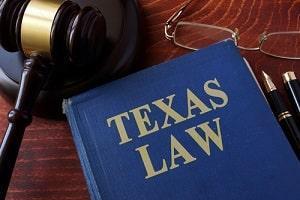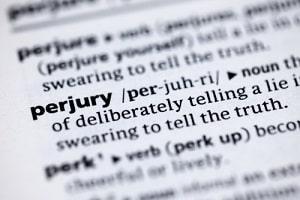Recent Blog Posts
How Does the Age of Consent Influence Criminal Charges in Texas?

Because children’s brains are not fully developed and they have not had the same life experiences as adults, it is assumed that children cannot consent to sexual activities. In the eyes of the law, this makes any sexual conduct between a child and an adult non-consensual and therefore unlawful. However, the “age of consent” or age at which a person is considered to be capable of agreeing to sex, varies from state to state. This can make it difficult to know when a sexual relationship is in violation of the law. If you have been charged with sexual assault of a child or accused of statutory rape, you could be facing life-altering criminal consequences. That is why it is important to contact a qualified criminal defense lawyer as soon as possible.
What Are My Options if I Am Facing Money Laundering Charges?
Money laundering is a term used to describe the act of hiding funds that are obtained through criminal activities. It is a criminal offense that is prosecuted by the state and federal government and punishable by steep fines and significant prison sentences. If you or a loved one has been charged with a criminal offense related to money laundering, contact an experienced federal criminal defense attorney right away. Do not speak to the police without your attorney present. Take advantage of your Constitutional right to avoid self-incrimination by remaining silent and asking for your lawyer right away.
U.S. Federal Money Laundering Laws
The term “money laundering” refers to the process of making illegally obtained or “dirty” money appear legitimate or “clean.” If you concealed or attempted to conceal profits from a crime, you may be charged with offenses related to the crime as well as the offense of money laundering. For example, if you received money from selling illicit drugs and then funneled those profits into your small business, you may face charges for drug distribution as well as money laundering. Money laundering typically involves three main steps. First, the cash obtained from the unlawful sources is disguised as money from a legitimate business or another lawful source. Next, the origin of the funds is obscured so that it is difficult for law enforcement to determine the original source. Lastly, the laundered funds are reintroduced or integrated into the economy -- often through financial institutions.
What Are the Potential Defenses to Federal Bank Fraud Charges?

When the average person thinks about what it means to steal money from a bank, images of masked robbers pocketing bundles of cash may come to mind. However, many schemes involving the unlawful acquisition of bank funds are much more technical in nature. Bank fraud refers to activities that intentionally defraud a financial institution. It is a criminal offense prohibited by federal law and investigated by local law enforcement as well as the U.S. Secret Service. If you or a loved one is facing federal charges related to bank fraud, it is critical to consult an experienced criminal defense attorney as soon as possible.
Understanding Bank Fraud Accusations
Bank fraud is defined by 18 U.S. Code § 1344 as knowingly:
-
Defrauding a bank or other financial institution
-
Acquiring money, assets, credits, or securities from a financial institution through false claims or misrepresentations
What Actions Can Lead to Child Endangerment Charges in Texas?

The state of Texas has a number of different laws that are designed to protect children from harm. Violating these laws can result in significant consequences including punitive action and irreparable damage to the offender’s personal reputation. Child endangerment falls under the offense of “abandoning or endangering a child.” Depending on the circumstances of the alleged offense, a person convicted of child endangerment may face six months in jail to 20 years in prison. It is sometimes difficult to know exactly what actions constitute child endangerment. Some adults end up facing criminal charges and were not even aware that their behavior was illegal.
Endangering a Child
An adult can face charges for abandoning or endangering a child if he or she leaves a child somewhere without adequate supervision and care or in circumstances that expose the child to danger. Texas courts use the “reasonable person standard” when determining whether or not a parent’s actions constitute child abandonment or endangerment. This means that the defendant’s actions are compared to what the average adult would have done in similar circumstances with a child of similar age and ability. For example, most adults would not leave a toddler home alone without supervision for fear that the child would hurt himself or herself. Therefore, this action would likely be considered child abandonment.
What Are My Rights If I Am Charged With a Crime Involving a Child?

Society considers crimes against children especially heinous. In the United States, a person charged with any type of criminal offense is innocent until proven guilty. Unfortunately, many people automatically assume that an individual accused of a child-related crime must be guilty of that crime. If you or a loved one has been charged with child sexual assault, child abuse, child pornography, or a related offense, understanding your rights is paramount to building a strong defense with the help of a skilled criminal defense attorney.
The Right to Decline Police Questions
Law enforcement may use a variety of tactics to make a criminal defendant submit to questioning. However, it is absolutely vital that you remain silent and refrain from answering police questions until your attorney is present. Being arrested and charged with a crime can be frightening, confusing, and overwhelming. When you are in a heightened emotional state, you are in no position to answer police questions. You may say or do something during the interrogation that worsens your chances of avoiding conviction. The U.S. Constitution protects your right to prevent self-incrimination. This right applies to police questioning as well as during your trial proceedings.
Can a Parent Face Charges for Leaving a Child Home Alone in Texas?

Parents are legally responsible for providing their children with the care and attention they need to be safe. As children get older, they gradually begin to gain the skills necessary to look after themselves. It can be hard to know when a child is responsible enough to be left alone. If you are like many parents, you may have wondered, “At what age is it appropriate to leave my child at home alone?” Texas law does not state an exact age after which a parent may leave a child at home without supervision. However, there are circumstances in which a parent can face significant civil consequences and even criminal charges for leaving a minor child home alone.
Texas Laws Regarding Child Neglect
Texas law requires parents and guardians to provide children with adequate food, water, shelter, clothing, supervision, and medical care. Failure to provide these basic necessities may constitute child neglect. A parent may also be accused of neglect if he or she allows a child to be in an unsafe situation that exposes the child to a significant risk of physical or mental harm. Child neglect is a civil offense in Texas, but it is often accompanied by criminal charges. Accusations of child neglect may lead to an investigation from the Texas Department of Family and Protective Services (DFPS). If DFPS investigators find evidence of significant neglect or abuse, the child may be removed from the home.
What Types of Drug Crimes Are Prosecuted By the Federal Government?

The manufacture, possession, and distribution of illicit drugs are prosecuted by both state governments and the federal government. Any drug-related criminal charge can lead to harsh penalties but federal offenses are often penalized more severely than crimes prosecuted by the state. If you have been charged with drug possession with intent to distribute, drug trafficking, or drug manufacturing, it is crucial that you speak with a criminal defense attorney. Federal drug crimes are often punished by lengthy prison sentences and heavy fines. Your attorney can help you defend yourself against these charges and ensure that your rights are fully protected.
Federal Drug Offenses Often Involve the Transportation of Drugs Across State Lines
What Are the Possible Criminal Charges for Child Sex Abuse in Texas?
Crimes against children are punished harshly in Texas. If you have been accused of sexually abusing a child, you could face significant criminal charges that result in possible jail time. Most people have a strong emotional reaction to allegations of child sex abuse. They may assume that just because a person is accused of harming a child that the person actually did harm the child. In some cases, the charges may be based on false allegations. This is why is it is crucial for anyone facing criminal charges related to child sex abuse to speak with a skilled criminal law attorney as soon as possible.
Sex Crimes Involving Minors
In Texas, there is no overarching law regarding sexual abuse of a minor. Depending on the circumstances of the alleged offense, a person accused of child sex abuse may be charged with:
What Is “Perjury” and How Can it Impact My Federal Criminal Case?

Being accused of any type of crime can be an unnerving experience. However, when the prosecuting party is the federal government, the situation is even more frightening. If you or a loved one has been charged with a crime relating to child trafficking, sexual exploitation of a child, money laundering, drug trafficking, weapons trafficking, or another federal offense, you may feel completely lost. The first step you should take is to hire an attorney experienced in defending against federal charges. Your attorney will help you avoid making mistakes that worsen your chances of being acquitted. One such mistake that can result in additional federal charges is lying under oath or perjury.
What Is “Entrapment” and How Can it Influence a Texas Criminal Case?

Entrapment occurs when a government official such as a police officer compels someone to commit a criminal offense. Some people falsely believe that police must always identify themselves as law enforcement officers. In reality, police are fully authorized to lie or use deceptive techniques to obtain evidence of a criminal act. However, police cannot use extreme behavior, threats, or coercion to force a normally law-abiding citizen to commit a criminal act. Entrapment is an “affirmative” defense against criminal charges in Texas, which means that the defendant is admitting that he or she committed the offense but is also presenting a justification for doing so.
What Is the Difference Between a Sting Operation and Entrapment?
If you have ever seen television shows such as To Catch a Predator, you may have wondered about the legality of police undercover stings. A sting operation is a law enforcement action intended to catch an individual committing a criminal offense. It typically involves an undercover police officer or detective posing as a potential victim or criminal partner in order to gather evidence that can be used during a criminal prosecution. However, if a police sting operation crosses the line into entrapment, evidence obtained during the operation may not be admissible in court. Sting operations are often used to catch individuals engaging in the purchase or sale of illicit drugs, solicitation of a minor, solicitation of a prostitute, or the possession or distribution of child pornography. The main difference between entrapment and a lawful sting operation is that a sting operation offers an individual the opportunity to commit a crime while entrapment involves the individual being coerced or persuaded into committing a crime.



















